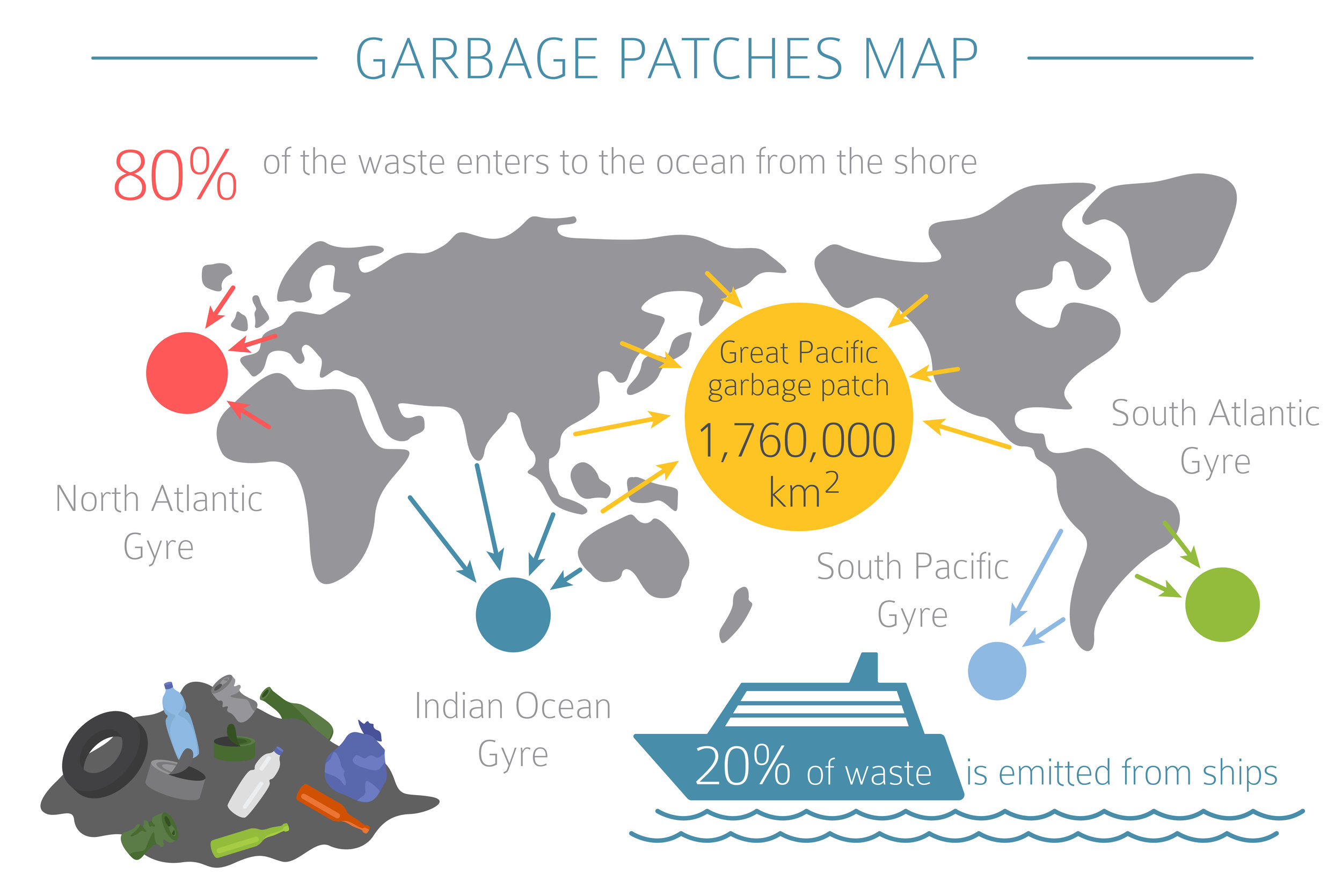Intro
According to a study done by the University of Georgia, there is an estimated 8 million metric tons of plastic trash entering the ocean every year. Plus, if you add on the 1.3 million gallons of oil being spilled into the oceans, it is clear to say our world’s oceans are in a health crisis. Now, how do we solve a crisis this significant? We chip away at it by creating new technologies that are built to combat our plastic problem. Companies like The Sea Bin, The Ocean Cleanup, and Recycling Technologies are inventing technologies that will tackle our pollution crisis.
The Sea Bin Project
The Sea Bin V5 is essentially a “trash skimmer” that pumps trash and debris from the ocean into the device. The Sea Bin, created by two Australian surfers, is installed in calm waters (Marinas, Ports, Harbors, and Yacht Clubs) and is capable of intercepting macro plastics, microplastics, floating debris, and even oils. The Sea Bin has become invaluable to the health of our oceans and has also received awards in the 2018 Sustainability, Innovation and Social Impact categories.
The Ocean Cleanup
The Ocean Clean-up is a non-profit organization who is creating technologies to “rid the world’s oceans of plastic.” The Ocean Cleanup has developed a passive system that uses natural oceanic forces to catch concentrated plastic. The plastic is then taken back to shore and adequately recycled to create high-quality products out of the litter. The purpose of The Ocean Cleanup is to sell their branded recycled material for reuse, making the cleanup self-sustainable. Environmentalists hopes are high as this device is projected to clean up half of the Great Pacific Garbage Patch in 5 years.
Recycling Technologies
Recycling Technologies is redefining the way plastic waste is being reused through their scalable machine, the RT7000. This machine chemically converts plastic waste, which is unable to be recycled, into a hydrocarbon product called Plaxx. Plaxx is cut into four specific fractions (Plaxx 8, Plaxx 16, Plaxx 30, and Plaxx 50), which all have applications in the packaging and fuel industries. The mission at Recycling Technologies is to scale out and develop 1300 RT700 machines in the next decade. This will allow them to produce 7 million tons of Plaxx and increase the recycling capacity to 10 million tons.
Conclusion
While these innovative solutions are working to solve the pollution problem, there are still many ways that we can all contribute without the use of cutting-edge machinery. For instance, we at Adopt A Beach are doing our part by offering beach-goers a safe and effective way of throwing out their trash. By improving the community around them, beach sponsors can increase their corporate social responsibility, therefore showing the people that taking care of the environment is worth investing in.

